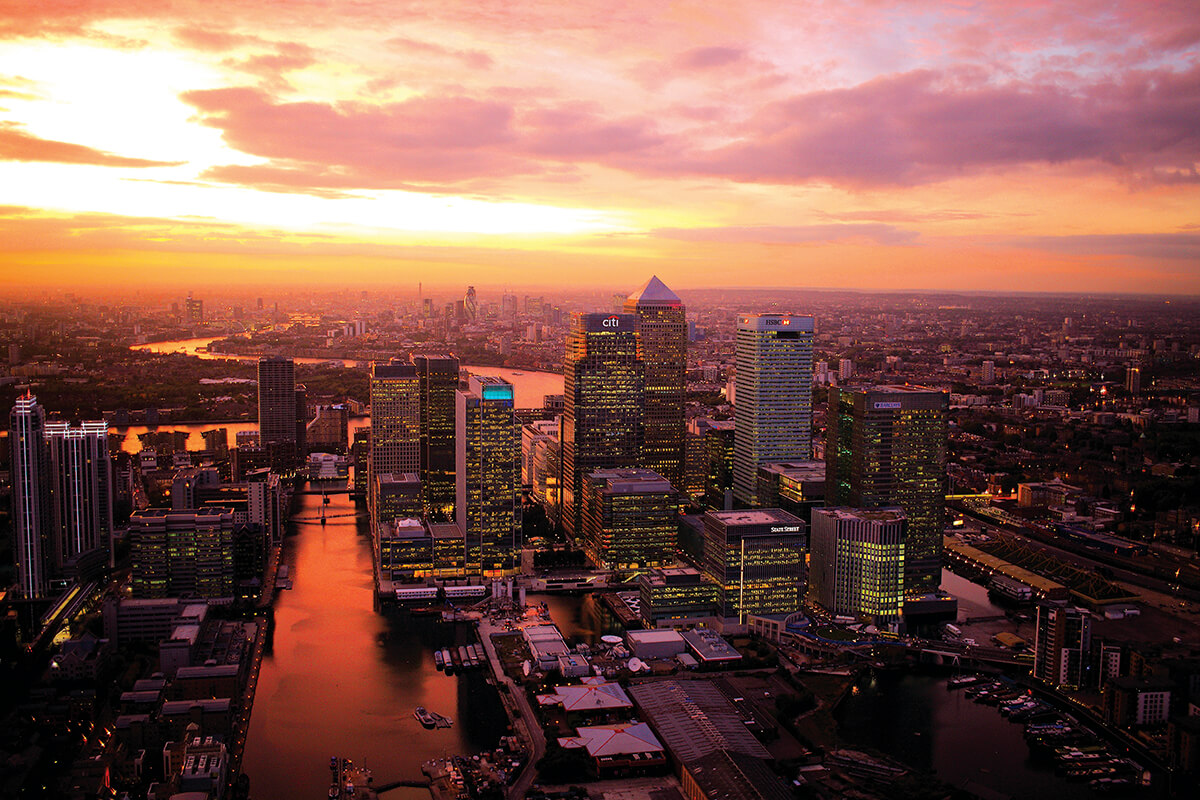
The Canary Wharf Estate is now one of London’s most recognisable views
Once an industrial dockyard, Canary Wharf Estate is now home to London’s most famous skyline of angular glass towers, but thanks to the vision of property developer Canary Wharf Group, it’s also a highly desirable residential area with a thriving Arts + Events programme, high-end dining options and plenty of luxury developments underway. LUX speaks to the group’s Managing Director Camille Waxer about creating a lifestyle destination, the importance of public art and her vision for the future
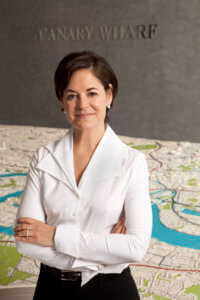
Canary Wharf Group’s MD Camille Waxer
LUX: What’s your vision for Wood Wharf as Canary Wharf’s newest mixed use district?
Camille Waxer: Our new district is designed to provide a residential led, mixed-use, waterside community defined by the quality of its public spaces, the diversity of its activities and its exemplary architecture.
The finished development will have the buzz that currently exists at Canary Wharf complemented by the tranquil setting of waterside living. Boutique shops and neighbourhood restaurants will be part of a thriving community with entertainment and leisure activities within the gardens, parks and squares and along the waterside boardwalks that line to the north and south side of Wood Wharf. As with Canary Wharf, art will be an integral part the community, in addition to a gallery there will art dotted throughout the development. There will also be a primary school, nurseries, GP surgery and play spaces for children.
Follow LUX on Instagram: the.official.lux.magazine
LUX: How do you select retailers for Canary Wharf? Have you noticed an increased demand for independent businesses or are high street names still dominant?
Camille Waxer: Initially the vision for the retail and food and beverage provision was to serve the working population but it was clear from very early on that the area wanted more, we started out with 6,000 sq ft of retail space and we now have over 1 million sq ft and Canary Wharf has become a destination. We evolved and we will continue to develop to meet the needs of the many visitors who come here – we regularly survey our visitors in the malls to deliver the shops, cafes, restaurants, services and amenities that people want at Canary Wharf. Our aim has always been to deliver what our customers want; it is a simple yet winning formula. Know your market, both with the retailers and your shoppers and your customers will become advocates for what you do.
The current trend is for independents which we love, there are some really interesting brands coming through but we need high street retailers as well, you need the mix. Our choice of retailers – whether they’re independents or high street names – will continue to increase, with the addition of new brands, particularly in food and leisure, and health and fitness. We recently launched Wharf Kitchen – a street food market where we bought together seven independents together and The Ivy, Polo Ralph Lauren, Peloton and Claudie Pierlot have also opened recently.
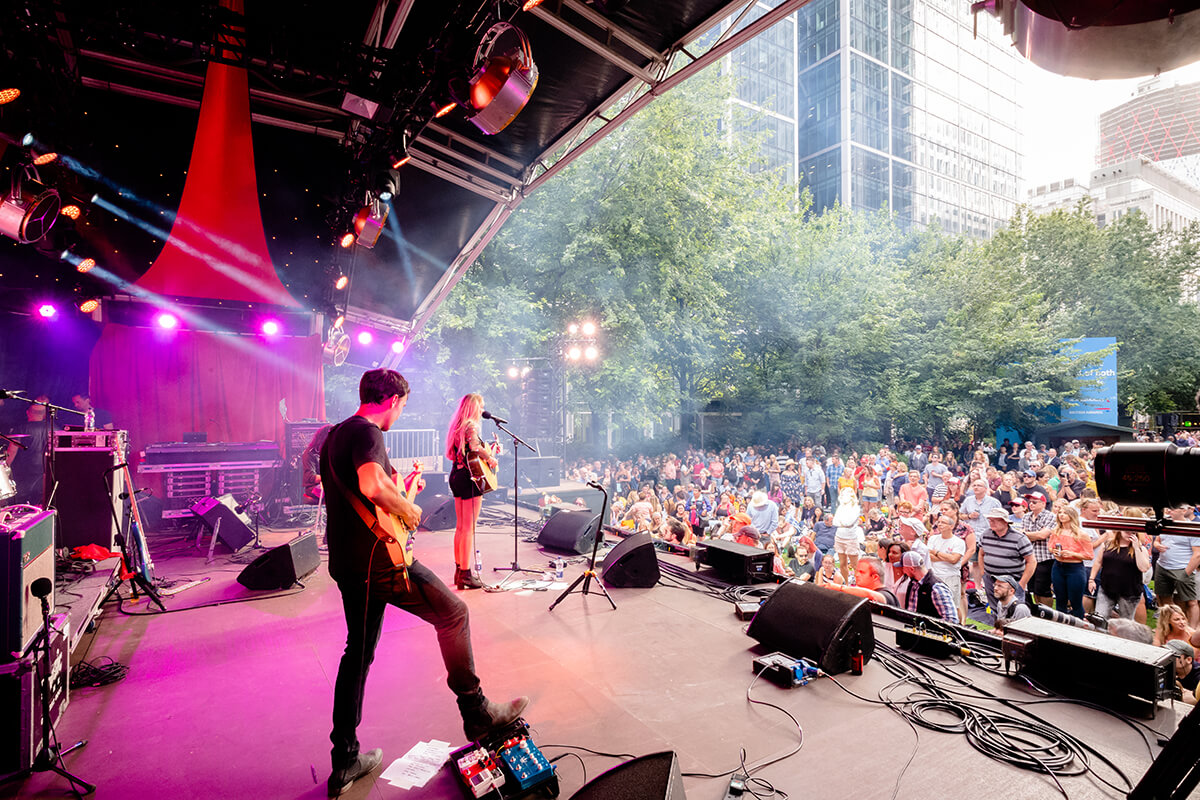
A crowd enjoying Nashville Meets London music concert in Canada Square Park, Canary Wharf
LUX: With Arts+Events, retail and dining, Canary Wharf has transformed in feel; it’s now much more than just a business district. How do you create a lifestyle destination?
Camille Waxer: We have 120,000 people working here each day and another 150,000 people visiting daily so it is important to create a place that people like. Our approach from the design of our master plan over 30 years ago through to what you see today and will continue to see in the future is centred on our belief that it is the consideration and integration of every part of this development that makes it the incredible place that it is – everything from the smallest detail to the largest of buildings.
We not only want to create exceptional buildings like our flagship residential building, One Park Drive, designed by Swiss architects Herzog de Meuron, but also an incredible environment for all of our visitors to enjoy. From the outset, public realm has been key to our development. We put our shops underground so we could put parks above them. When you walk around Canary Wharf you’ll will find buildings designed by globally renowned architectural practices surrounded by beautiful and award-winning gardens, parks and squares – all complemented by a culturally inspiring arts and events programme.
Read more: Why you need to see Alberto Giacometti at Guggenheim, Bilbao
LUX: Why it is important for an area to have Arts+Events programmes and what do you think are the most effective ways of building/creating a community feel?
Camille Waxer: From the outset we had a cultural masterplan that included a fully curated programme of day and evening events and activations throughout the week. The culture is the glue that holds Canary Wharf together, without it we would be like every other development.
Our year-round Arts+Events programme delivers over 200 diverse events each year, designed to offer something for all tastes, there is everything from music concerts, comedy nights, family and community shows to food markets, sporting events, dance and theatre – all free to attend. We work with many of the world’s leading art institutions yet crucially we also work with small, local community groups who are part of the fabric of our Estate. The sense of community that you feel when visiting Canary Wharf comes from the people, whilst the developer can create the place it is the people that will make it a community and we recognised this from the very beginning.
Our events are designed to appeal to audiences of all ages, from the local area and beyond and through our events programme, people engage, interact and enjoy their time at Canary Wharf. In January, we have our fantastic Winter Lights Festival which runs for 10 days and has become a must see event in people’s calendars.
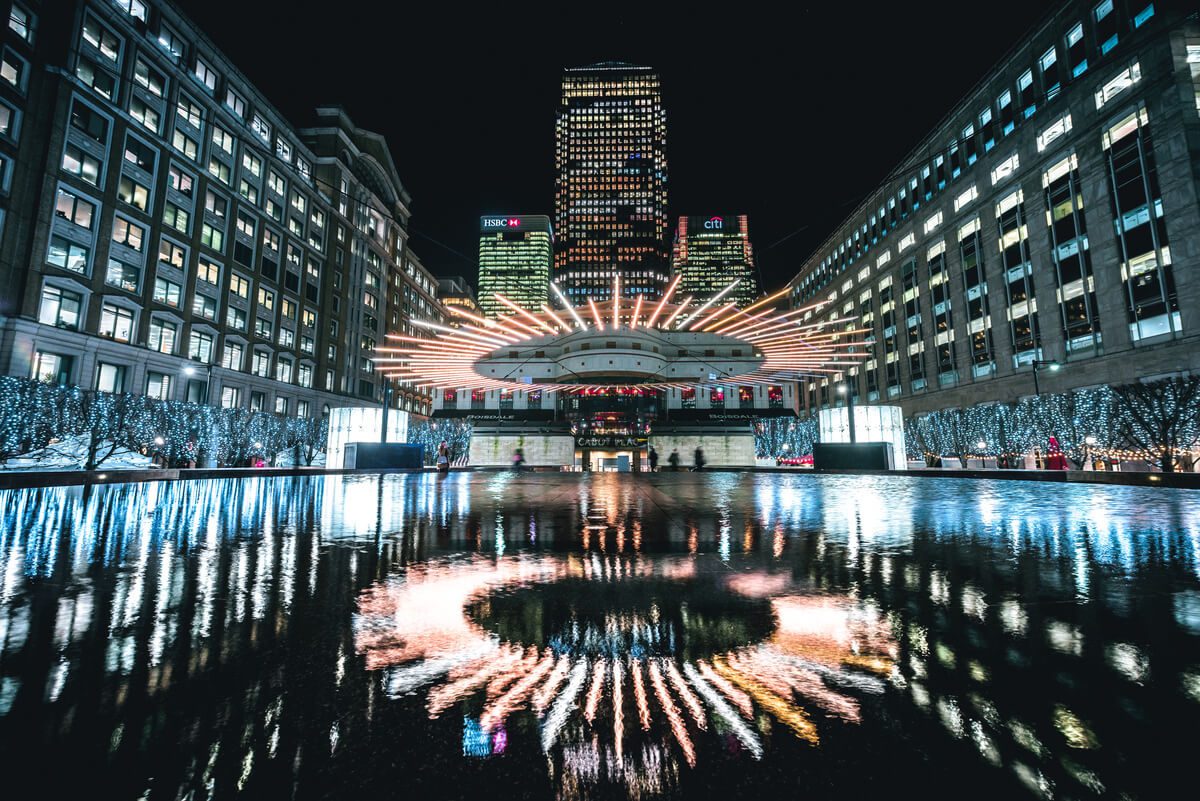

Here and above: installations from the 2018 Winter Lights display in Canary Wharf
LUX: Canary Wharf Group has an impressive public art collection which includes work by Henry Moore and light artist Bill Culbert. What purpose do corporate collections serve?
Camille Waxer: Art is in our DNA and has been integrated in to the built environment from the very beginning. We have always been driven to provide a destination that has a positive impact on those who use it – the office occupiers, the local community and visitors to our Estate and for us art plays a huge part in this. Our corporate collection serves the local and wider community, it is accessible, and most importantly located in places where it can be seen and touched. The art that you see throughout the Estate has helped to create a sense of place.
Canary Wharf is now home to one of London’s largest collections of public art with over 70 pieces of art across the Estate, new pieces are added to the permanent collection each year and we also host a temporary exhibition programme that champions emerging and local artists alongside more well-known artists. Our CEO and Chairman Sir George Iacobescu, CBE is the force behind the collection and I feel privileged to work with him on it.
LUX: In 2013 you launched Level39, a tech community offering expert mentors and workspaces. How does this scheme work and where did the idea come from?
Camille Waxer: With London emerging as one of the world’s leading centres of technology innovation – we launched Level39, a community and co-working space for startups and scale-ups situated in the heart of Canary Wharf. It is now home to 200 ambitious companies and has grown to become the leading fintech – financial technology – hub in the world and the largest concentration of cyber security startups in the city.
The community has helped change the Canary Wharf from a predominantly financial services district to a more technology-focused community.
LUX: What’s the greatest challenge in managing a 97 acre site with a service charge budget of over £90m?
Camille Waxer: I can only respond in saying that we have the most amazing team of dedicated people working for Canary Wharf Group. Yes we have challenges yet we are a very well-oiled machine, with a huge amount of expertise and experience.
We are all exceptionally proud of everything we have achieved, there are challenges as with any organisation yet they are dealt with as a team and as a result it is a joy to manage the Estate even with the challenges.
LUX: When Southbank Place completes in 2019 what can we expect to see?
Camille Waxer: Southbank Place has been one of the most talked-about developments in London since it was first announced, and I believe that it will really change the landscape of the local area once complete. The location is so central and such a great cultural hub, I can’t wait for us to be part of the community with merging our own arts and events programme with the surrounding venues.
Some of our shops have already opened Gail’s Bakery, M&S and Boots to name a few. The independents will follow. Southbank Place is just the start of the revitalisation of this area of London.
Read more: Philippe Sereys de Rothschild on fine wine & supporting the arts
LUX: How do you make sustainability a priority whilst trying to meet consumer demands?
Camille Waxer: Sustainability is an integral part of our strategy to shape Canary Wharf as a city of the future. With our new residential developments our Estate is evolving; from a place to work in to a place to live. And we know consumers want a more sustainable planet/environment.
On World Environment Day, June 2018 we launched ‘Breaking the Plastic Habit’, a 12 month programme designed to remove single-use plastics across the Canary Wharf Estate. As part of this programme, we have committed to becoming the world’s first commercial centre to be accredited with ‘Plastic Free Community’ status in partnership with Surfers against Sewage, a national marine conservation and campaigning charity. This is something that we are passionate about with the volume of food operators we have and it is our responsibility to do something about it.
LUX: Can we expect to see changes in consumer buying in the next ten years and will this affect leasing and retail spaces?
Camille Waxer: The retail market continues to be challenging. However, there is still a huge demand for retail stores as consumers continue to want to enjoy retail experiences within physical store environments. The trend at the moment is for independent operators and it is wonderful to see the talent emerging, I sit in many meetings and I think wow that takes guts to give it all up to open up a food stall. A blend / mix of independents and high street is important.
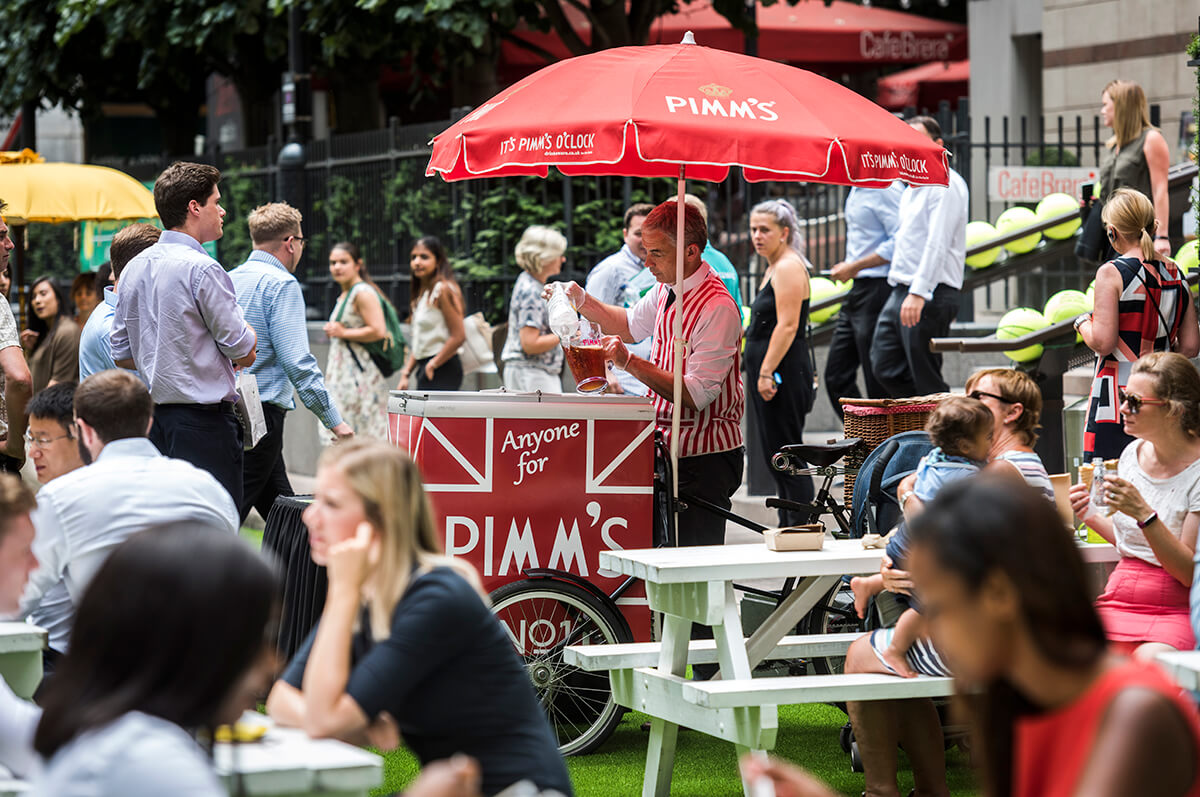
Visitors enjoying Pimms being served for the Wimbledon tennis screening in Cabot Square, Canary Wharf
LUX: What do you consider your biggest achievement to date and why?
Camille Waxer: My biggest achievement is the time that I have spent here. I have been working at Canary Wharf Group for 28 years, I have been part of realising our vision for a master plan that was completely new to London – the creation of a purpose built, district designed to respond to the needs of its users in an area that was unused and suffering from high levels of dilapidation and unemployment following the closure of the docks.
The early days were some of my favourite moments, at the time there were few believers in what we were doing but look at where we are now; we have gone beyond what anyone thought possible, we haven’t simply created a district we have created a destination – Canary Wharf is vibrant and thriving with over 49 million people visiting our malls each year. We have contributed to the regeneration of a large area of our city. It doesn’t get much better than this!
The passion and collective hard work of the team here is very inspiring. This is not a job for me, it is a pleasure.
LUX: When you’re not leading the group’s retail efforts, how do you like to spend your time?
Camille Waxer: My daughter and my husband play golf so I walk the courses with them which is pretty much every weekend and once a year I get my own clubs out but frankly that is probably once too many. I love going to the theatre, art galleries, dabbling in property development and sitting on the dock at my friend’s cottage in the lake area outside of Toronto; just enjoying the moment, it is magic.
Find out more: group.canarywharf.com

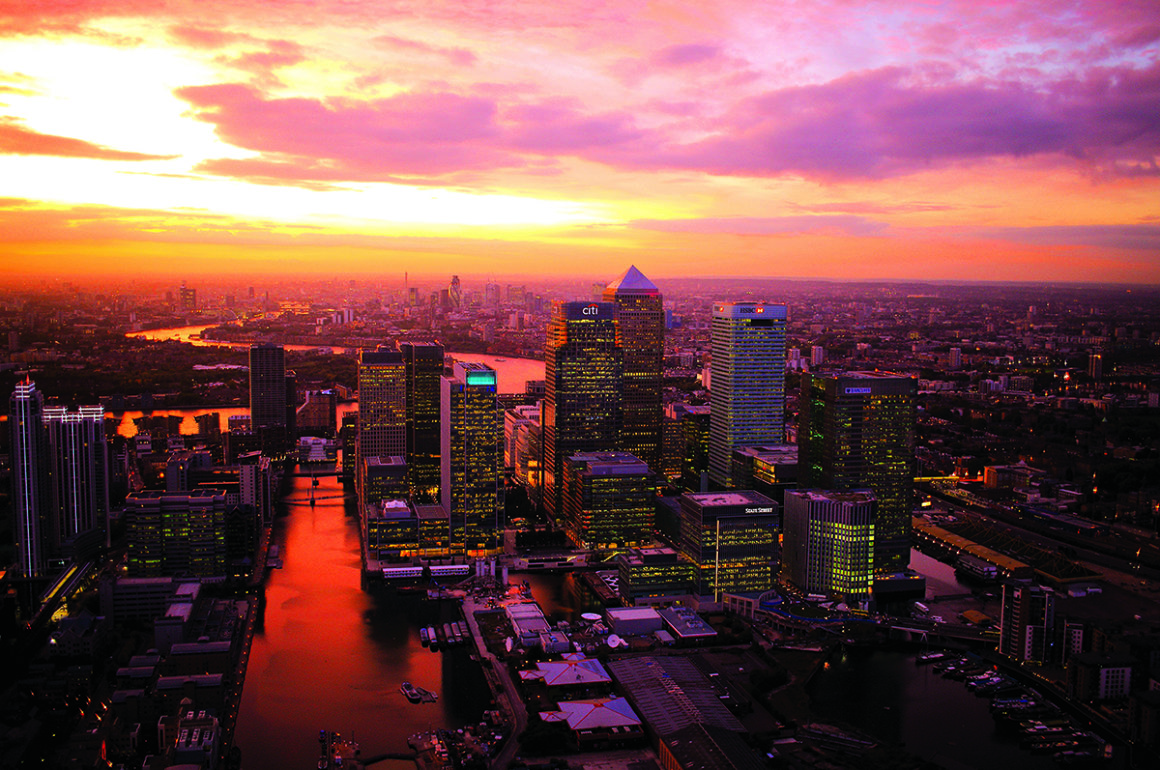
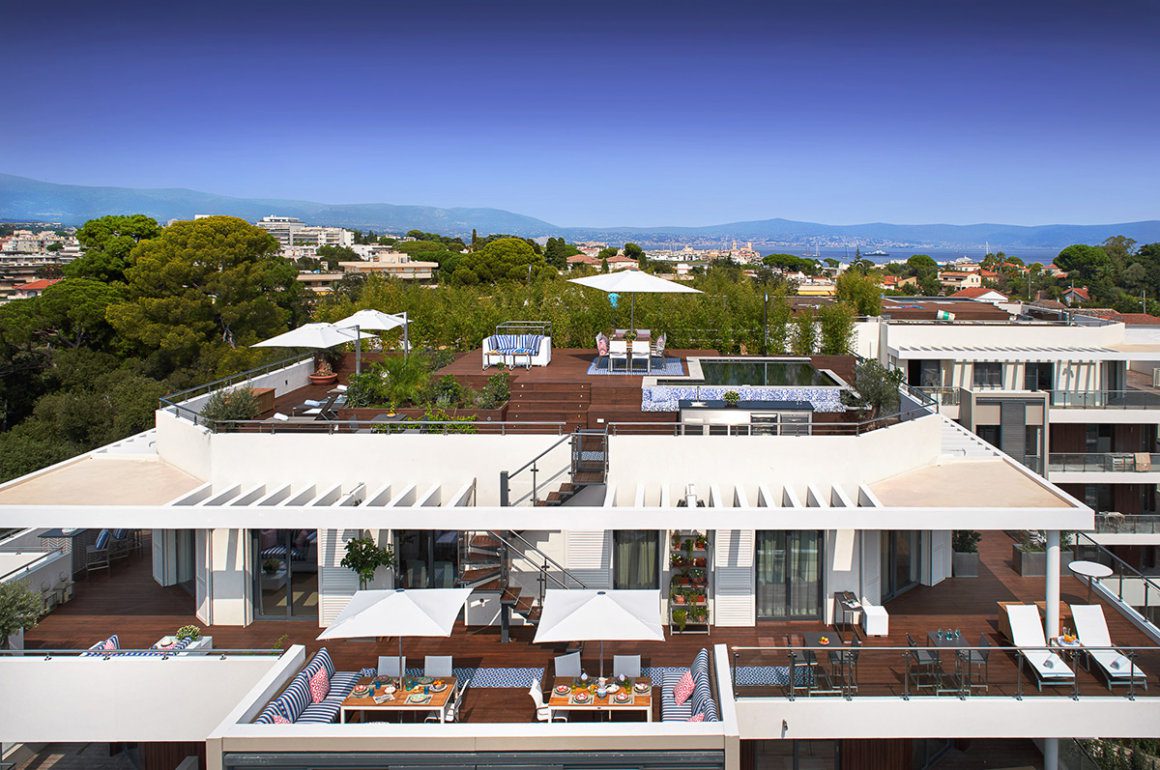
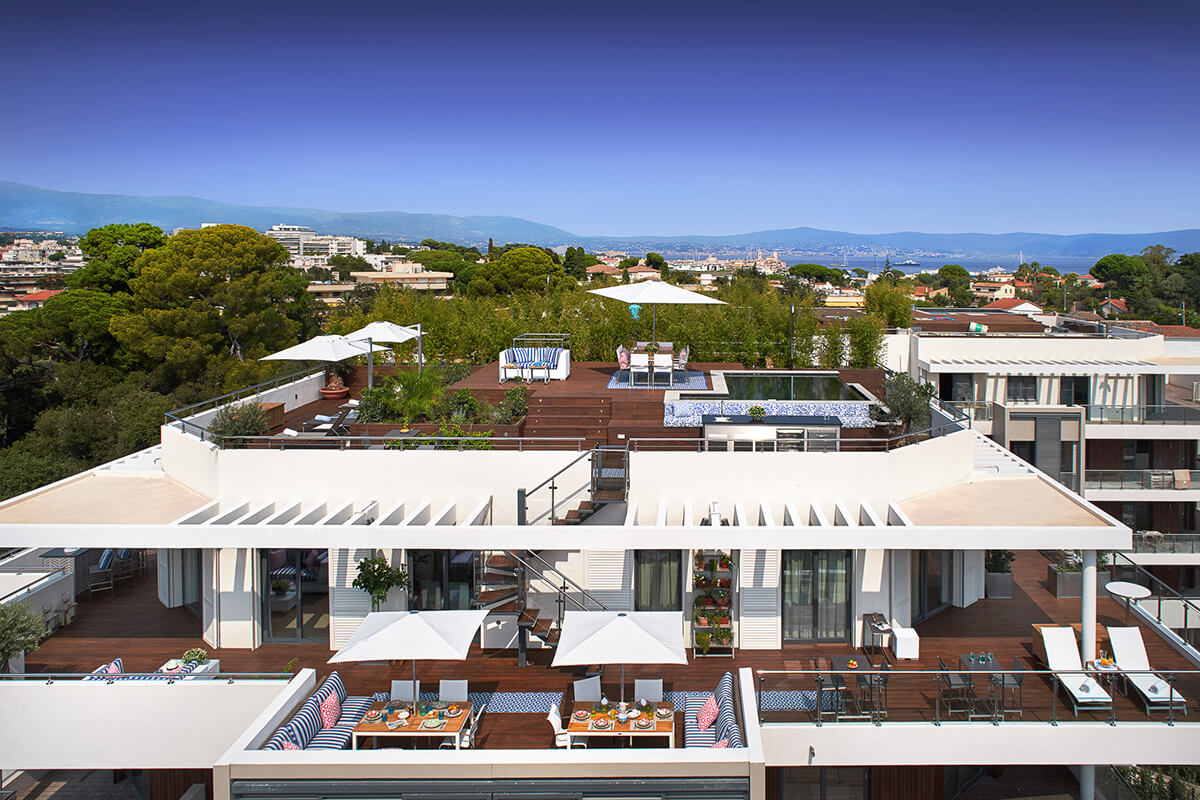

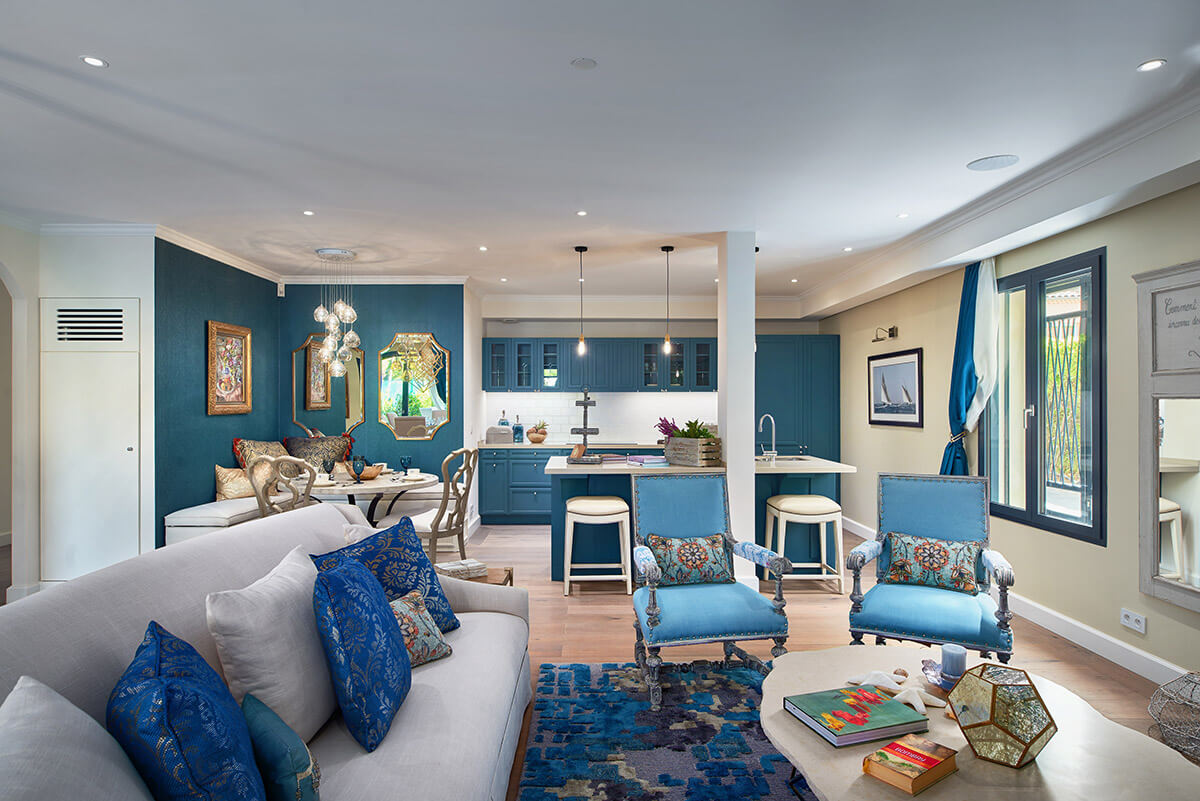
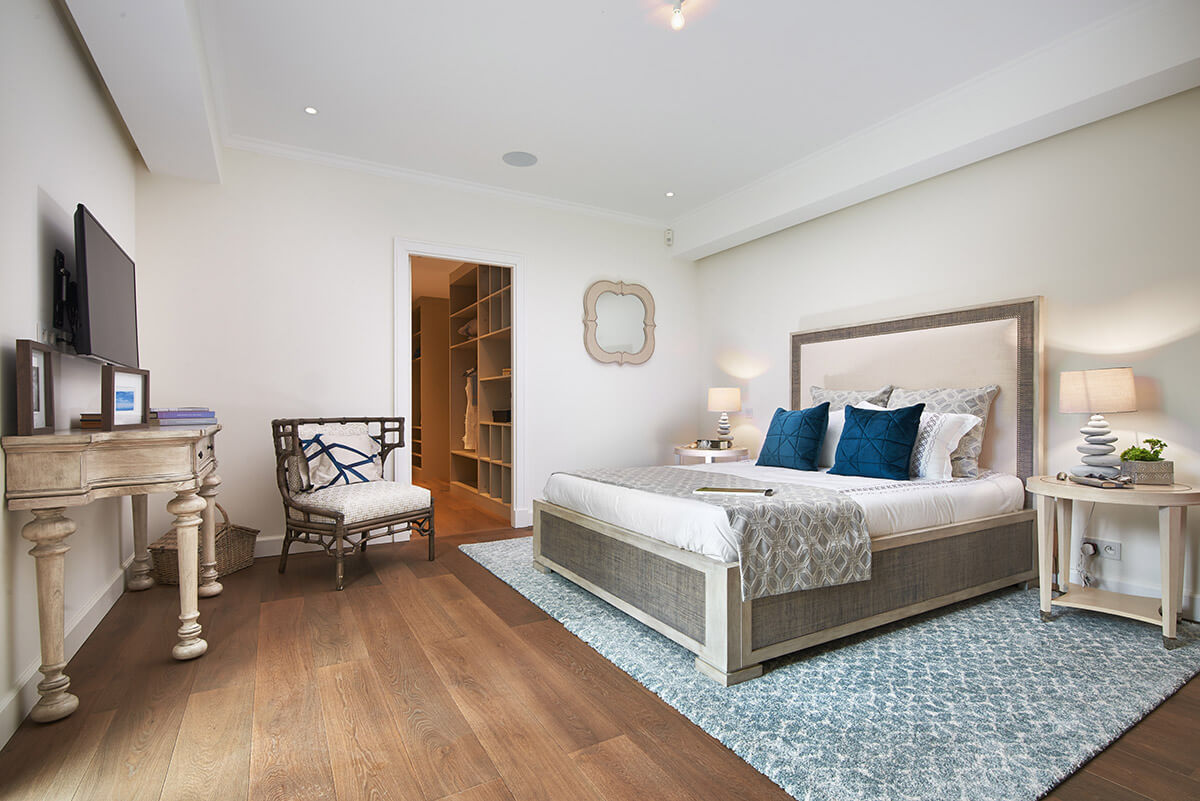
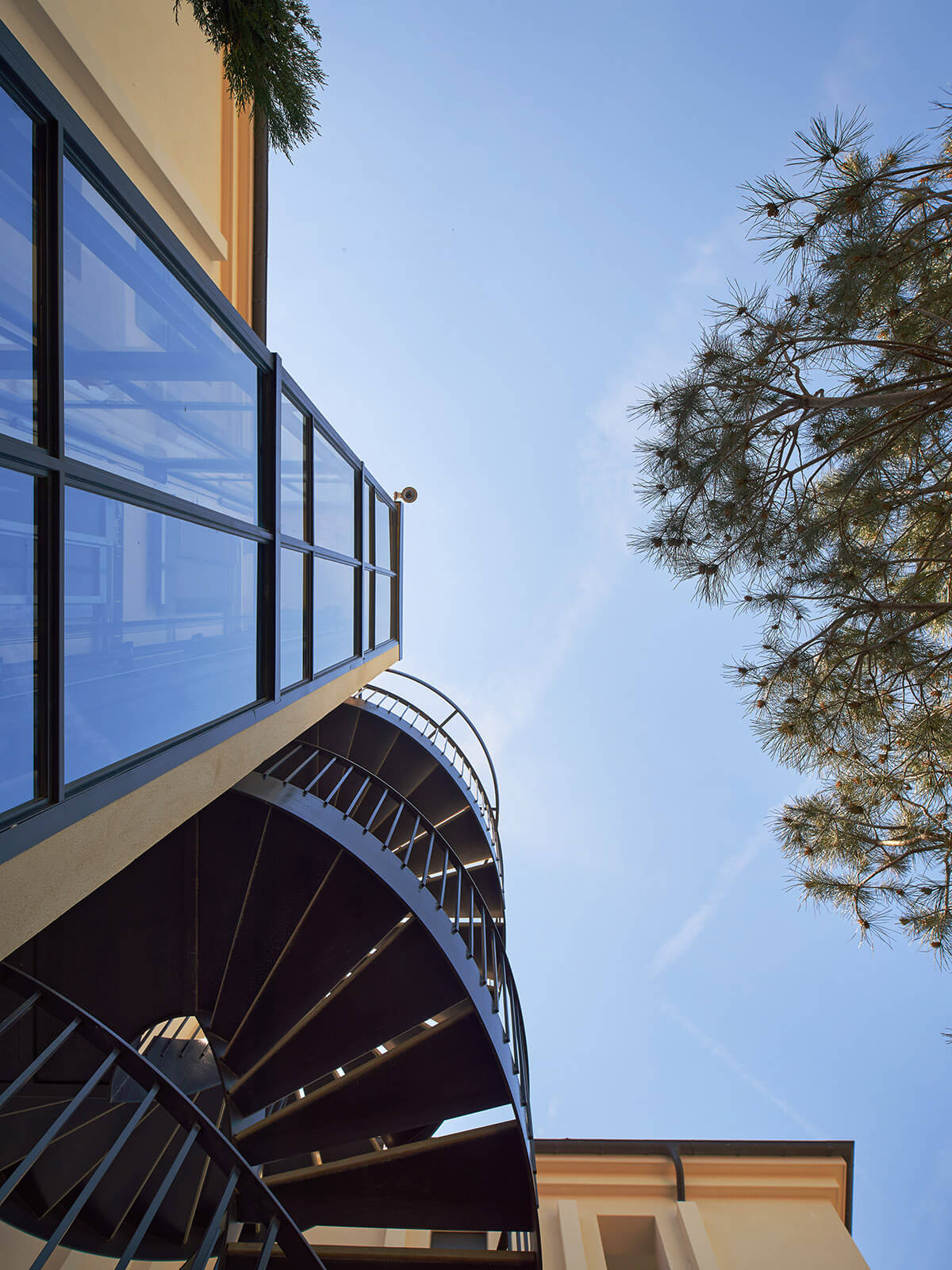
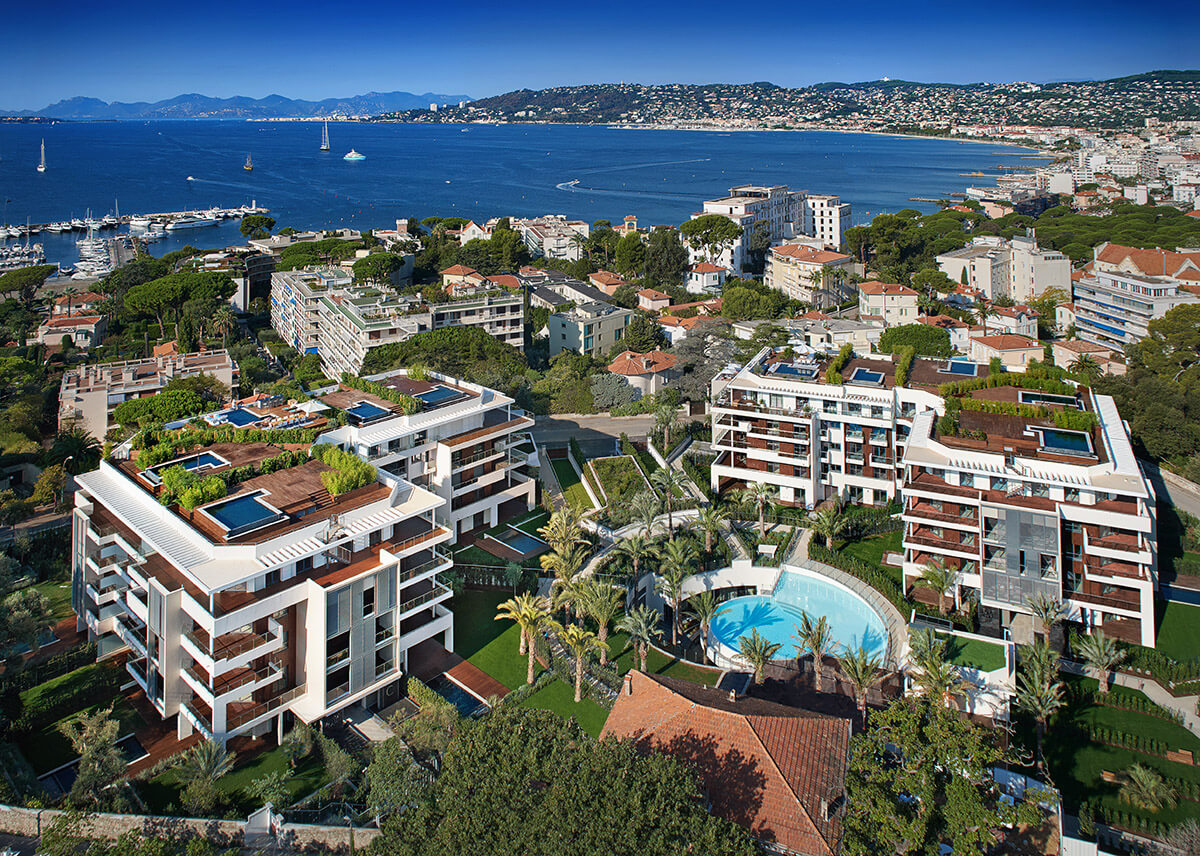
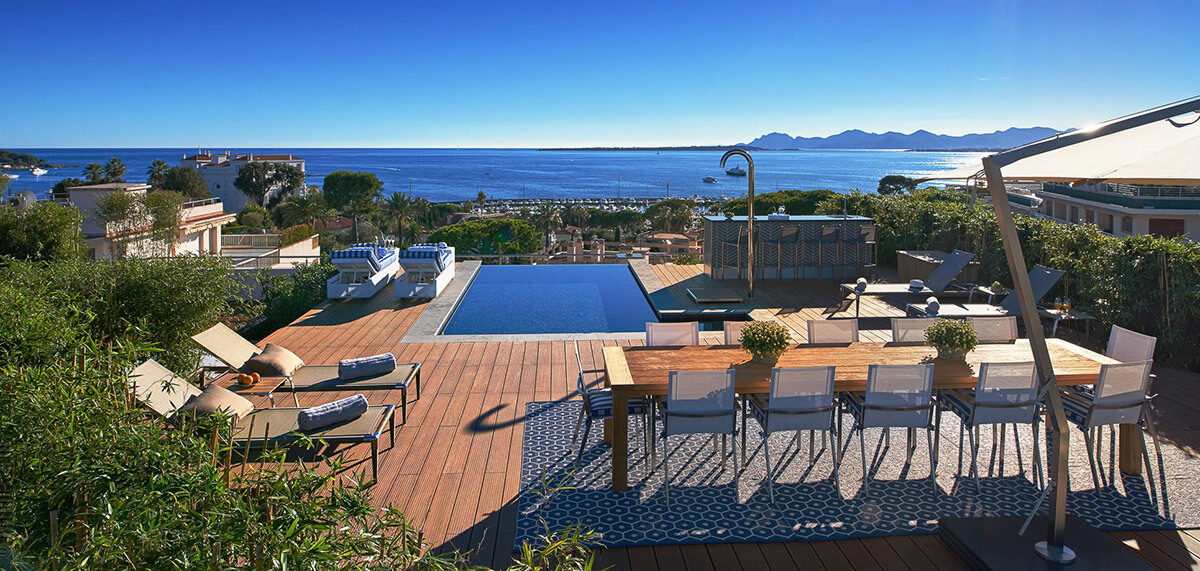
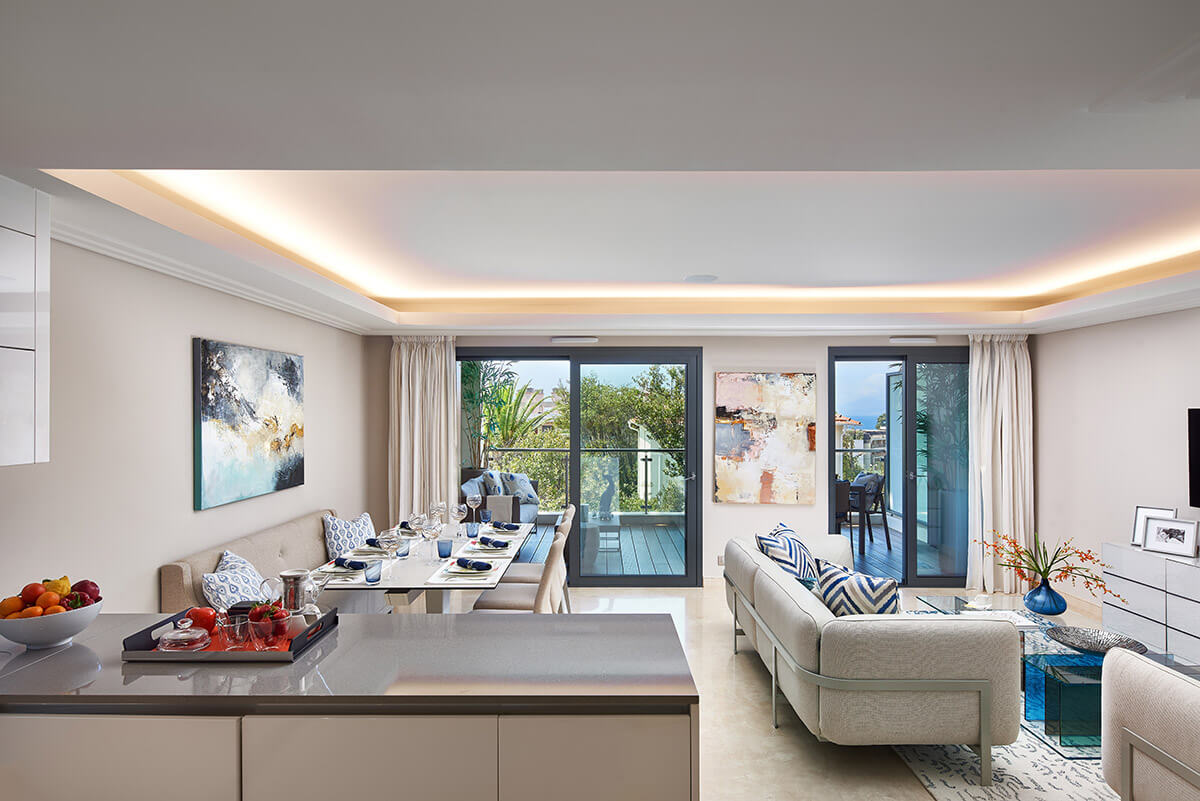





Recent Comments